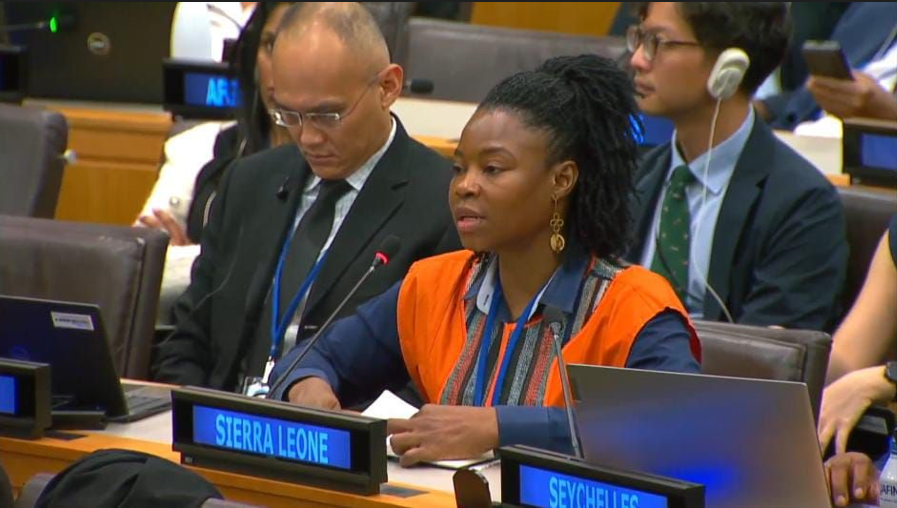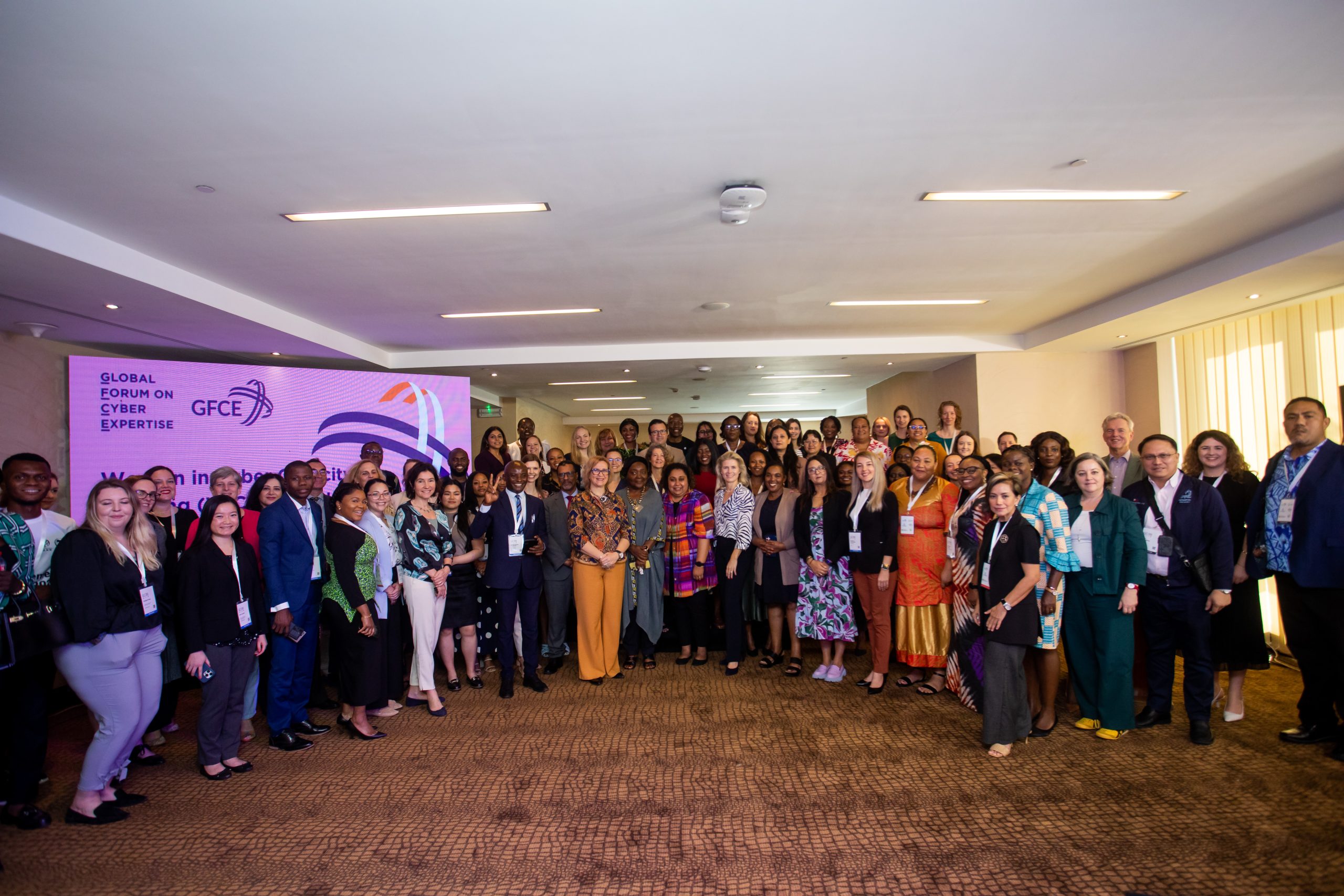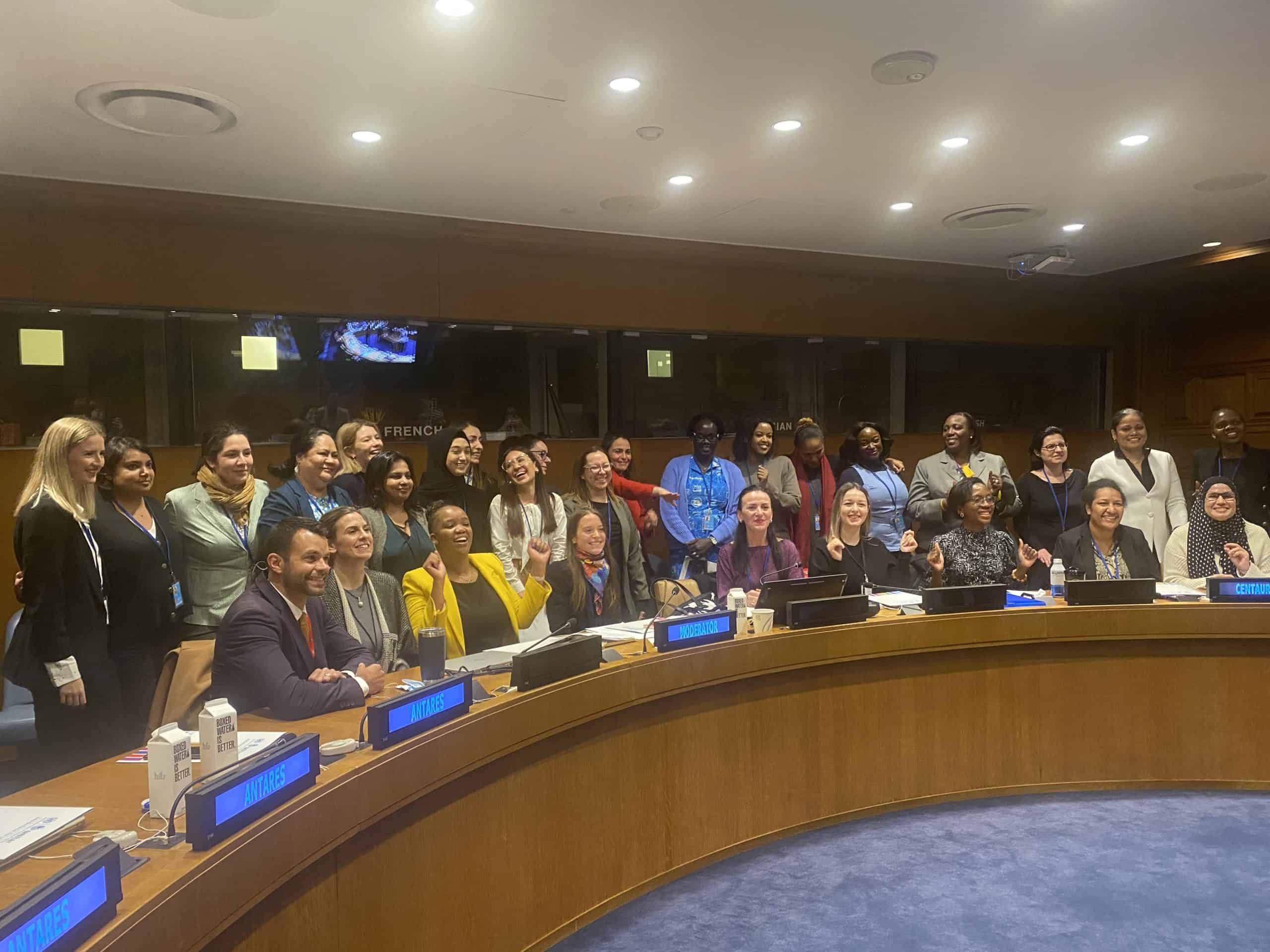Women in Cyber Fellows Achieve Milestone at AHC: Concluding the UN Convention Against Cybercrime

Over the past two years, the Women in International Security and Cyberspace (WiC) Fellowship Program has been instrumental in supporting and empowering mid-career women diplomats and government officials working on security or cyber-related issues to actively and meaningfully participate in the UN Ad Hoc Committee to Elaborate a Comprehensive International Convention on the Misuse of […]
Women in Cyber Capacity Building – Breakfast Session – “Sharing Regional Perspectives ”

The Women in Cyber Capacity Building (WiCCB) Breakfast: Sharing Regional Perspectives, held on November 28th, 2023, in Accra, Ghana, marked a significant step forward in addressing gender inequality within the realm of Cyber Capacity Building (CCB). The session served as an informal gathering of all gender equality advocates in cyberspace, fostering connections and collaborations across […]
International Women’s Day 2023

Today the GFCE celebrates International Women’s Day. We reaffirm our commitment to supporting and empowering gender inclusion in the field of cyber security and capacity building. It is crucial to understand how gender considerations impact and are impacted by behavior in cyberspace, which has become a major policy objective of states and non-states actors. A […]
